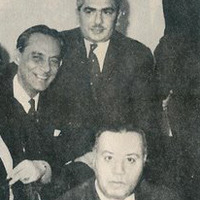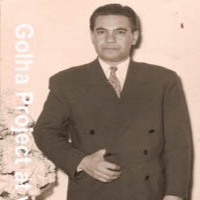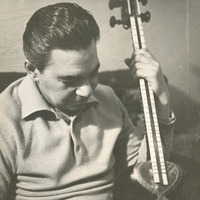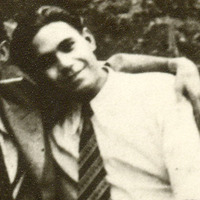‘Abduʼl-‘Ali Vaziri
(1913-1999)Vaziri, ‘Abdu’l-‘Ali (1913-1999), vocalist performing classical avaz and tasnifs, one of the earliest vocalists performing in the Gulha programmes (Gulha-yi Javidan), and amateur setar instrumentalist. He studied music with his cousin, ‘Ali Naqi Vaziri, one of the maestros of classical music and the founder of modern Persian music in the twentieth century. He was the first Iranian vocalist who had learned techniques different from the prevalent techniques of Persian traditional vocalists and performed them in orchestra programmes played at the Tehran Conservatory of Music (Madrasa-ye ‘Ali-yi Musiqi) under the directorship of ‘Ali Naqi Vaziri. He made a name for himself from about 1940 but his reputation reached its zenith with his performances in the programmes sponsored by the Society for Iranian Music (Anjuman-i Musiqi-yi Iran) under the directorship of Ruhu’llah Khaliqi. His fame declined from 1955-1956 onwards, becoming consigned to oblivion thereafter. The decline in his fame was also caused by his inclination toward seclusion and the depression that ensued from his extreme bon vivant life style and drug addiction.
‘Abdu’l-‘Ali Vaziri was one of the earliest vocalists performing in the Gulha-ye Javidan programmes, in which he sang in numerous programmes accompanied by instrumentalists such as Ahmad ‘Ibadi, Riza Varzandih, and Mihdi Khaliqi (violinist). His endeavours were appreciated and celebrated in a special Gulha programme held on the radio in his honour. Nonetheless, although only a few of his performances are available today, some of his orchestral pieces and tasnifs are quite memorable. Among his best performances is featured Beshnu az nay (“Hearken to the Reed Flute”), composed by ‘Abdu’l-‘Ali Vaziri using the lyrics by Rumi and performed by the Grand Orchestra. No independent album by him has been released.
Siyamak Bana’i




 In association with The Iran Heritage Foundation © All rights reserved 2024. Jane Lewisohn | Website by
In association with The Iran Heritage Foundation © All rights reserved 2024. Jane Lewisohn | Website by